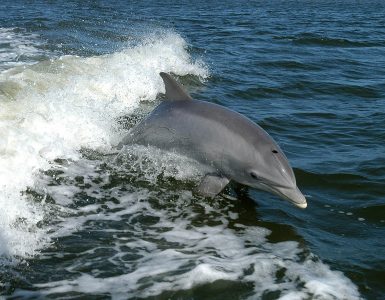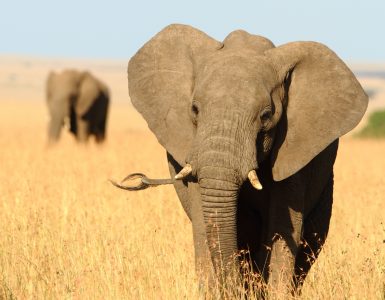
Birds having a global distribution provide many important services in the ecosystem despite their size, guild etc. Ecological services of birds can be divided into four broad categories;
- supporting
- provisioning
- regulating and
- cultural services
The supporting services are very important for the functioning of other ecosystem services such as nutrient cycling and the formation of soil. A study on the island in the Gulf of California showed that when birds roosted, the left guano deposits provided nutrients to the plants on the island and as a result, the trees grew taller and faster and were much more productive than the other islands that were excluded of bird colonies. In Alaska, Lesser Snow Geese and Canada Snow Geese use salt marshes as stopovers during spring migrations. While these birds foraging in the marshes they trample the ground, which tears up the leaf litter on the top and incorporates it into the soil. This promotes the decomposition and helps the nutrient cycling as well as soil formation
Provisioning services of birds’ deals with how birds can have positive impacts on the raising of crops and livestock. A study done in California demonstrated that the waterfowls tear, shred and churn up the straws looking for grains and invertebrates in paddy fields. This study indicated that this was economically beneficial as the tillage was not needed due to the increased microbial decomposition caused by waterfowls. Birds are main predators of insects hence, they are important for the regulation of pests. Insectivorous birds reduce crop damage by feeding on pests. Installation of nest boxes in plantations where the birds could feed on pests, eliminates the need for pesticides and artificial perches or natural perches like coconut leaf stalks provide birds places to perch and search for pests. The mutualistic relationship of livestock such as cattle and birds is beneficial for the health of livestock. Birds remove harmful parasites from cattle and birds have access for a readily available food source. Provisioning role is associated with the economic benefits of humans.
Under the regulatory services of birds’ carbon sequestration, waste decomposition, air purification, seed dispersal, disease control and pollination are considered as main services. The vultures are important scavengers who remove the carcasses of dead animals. Scavenging by birds is an important mechanism of waste disposal in many areas and prevents disease outbreaks. In India, the decline of vultures caused the increase of feral dog population as the competition for carrion was decreased. Hence, a rabies pandemic occurred between 1993 and 2006 causing health cost of $34 billion.

Birds disperse seeds during foraging and help the seeds to germinate far away from the source tree. They contribute to the reforesting of deforested lands reducing the costs of restoration. Orioles, robins, finches, mockingbirds are some examples of frugivorous birds. In Oak forests in Sweden, the cost of replacing the seed dispersal services of Eurasian Jay in Oak regeneration is estimated as $9400 per hectare. Birds contribute to the carbon sequestration and air purification which in turn contribute to climate change in a positive manner.

Nectarivores are important pollinators helping trees to fertilize their germ cells and reproduction of new plants. Hummingbirds, Sunbirds and honeyeaters are common pollinators. Many birds are considered as ecosystem engineers that create, significantly modify or destroy habitat. They are important for the maintenance of the health and stability of the environments they are living in. This term is mainly used for keystone species whose behaviour has a greater impact on other animals. Trogon surrucura is considered as an ecosystem engineer as it builds cavities to nest the in arboreal termite nests and hornet nests. The cavities are later used by other species of birds and small animals. All the woodpeckers and other primary cavity nesters are known as ecosystem engineers.

The cultural services are a bit different from other services as it is more abstract and includes conceptual and natural appraisal. Bird watching is one example which fosters ecotourism. In Sri Lanka, Kumana National Park is renowned among birders. In Native American religions, vultures are considered deities, in Sri Lankan context Indian Peafowl is regarded as the vehicle of God Skanda. Birds also play prominent and very diverse roles in folklore, religions and cultures.It is hard to place an economic value for the cultural service provided by birds. These services are crucial for the functioning and the stability of our ecosystem. For the well-being of any animal not only the birds, placing a dollar value for the services they provide is the best practice for the conservation of them.

Sewwandi Alwis
Undergraduate
BSc. (Zoology . Hons.)
University of Colombo
Faculty of Science
References -Birds & Ecosystem Services | EnvironmentalScience.org https://www.environmentalscience.org/birds-ecosystem-services Morante-Filho, J. C. and Faria, D. (2017) ‘An Appraisal of Bird-Mediated Ecological Functions in a Changing World’, Tropical Conservation Science. SAGE Publications Inc., 10(1), p. 194008291770333. DOI: 10.1177/1940082917703339.
Images courtesy - Pixabay Featured image courtesy - https://www.freepik.com/free-photos-vectors/sea






Add comment